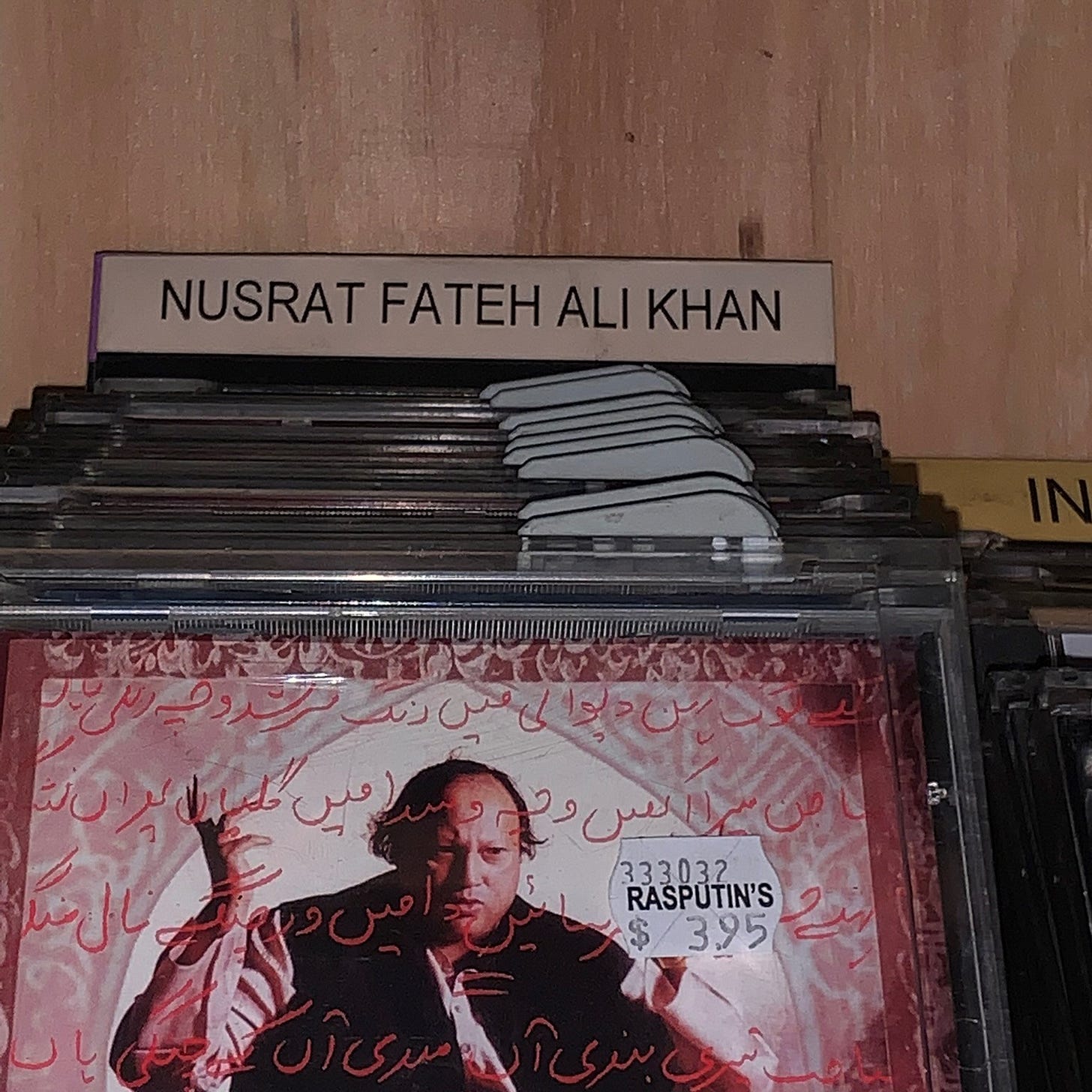Finding Nusrat Remixes
Shahan Shahid writes in:
Of late, what has interested me more about Nusrat Fateh Ali Khan’s legacy is his footprint; the people he influenced, the routes he traveled, and the praise he attracted. There’s that performance in Paris in 1988 where it is said God came down to witness what was unfolding; that tour to Japan which led to this iconic version of Ya Hayyu Qayyum; that house Nusrat built near Akbar Chowk in Lahore which hosted the equipment Nusrat had been gifted by friends across the globe and Michael Brook when he visited in 1996 (sadly, the house now stands abandoned); and the location of Oriental Star Records, the label responsible for releasing so much of Nusrat's work, in Birmingham, UK, which Nusrat must have frequented—now likely a desi restaurant.
It has only been natural for me to trace some of these footprints. I have looked for Nusrat in record shops in Tokyo, in thrift stores in Washington, DC and Mexico City—all to no success. A couple of days ago, however, I walked into Rasputin Records on Telegraph Ave. in Berkeley, California. I scanned the sections "Religious" and "Soul" to no avail but then saw "World" and there he was.
But it got better. Though tugged deep inside a section, the store had an entire category dedicated to the man.
There, I saw "House of Shah - Hit Remixes - Mick St. Clair," a record I had no idea existed. Before I conclude why this record is the singularly most interesting set of Nusrat remixes you will hear, a tangent on how and where we consume our music. This experience of finding a Nusrat record at a store signifies that online platforms on which we listen to our music optimize for retrieving—e.g., here's the most popular Nusrat song right now—but not finding, finding as in records like Mick St. Clair's which "the algorithm" might never be able to predict I will like.
Upon checking out, I expressed how excited I was that the store carried Nusrat and from behind the plexiglass, Tom, the store's manager, mentioned how he regretted missing an opportunity to listen to Nusrat live when he played at the Greek Theater at UC Berkeley in 1996.
House of Shah sees a Jalandhar-born DJ by the stage name Mick St. Clair, colloquially the first Asian in the craft in the UK, try to make some iconic Nusrat works more disco-friendly. The result is of giving a giant telescope (i.e. Nusrat's body of work) to a kid who knows little about astronomy. Sure, at the odd instant as the kid jostles the telescope in every direction, they might catch a clear shot of Jupiter or of Saturn's rings but a bulk of the experience is blurry, meaningless, and dizzying.
In Dumardum - Dholkimix, Shahbaz Qalandar, and Ali-Maula the telescope jostling is on full view. Particularly,Yaad-e-Nabi, is a lesson in how to never remix Nusrat: the words are barely audible and the remix misses the qawwali's crescendo.
In Yaadan Vichre Sajan Diyaan Aaiyaan, Allah Hoo, Nit Khair Mangaan, and Haq Ali Ali Mick's innovation is to find a drum beat that lays perfectly on Nusrat's party's and which accentuates the drops making for a pleasing experience. In sum, for a little more danceability, the essence of the qawl is lost.
Here’s the album on Spotify:



